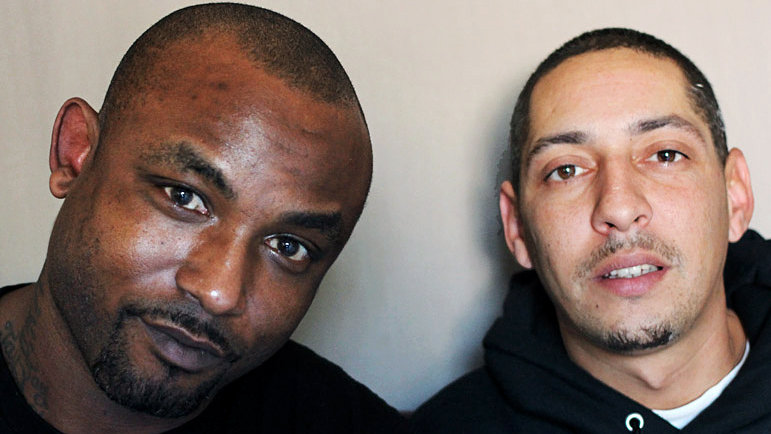An older and troubling yet uplifting inside story of an abandoned assisted living home comes from NPR’s StoryCorps:
“When an assisted living home in California shut down last fall, many of its residents were left behind, with nowhere to go.
The staff at the Valley Springs Manor left when they stopped getting paid — except for cook Maurice Rowland and Miguel Alvarez, the janitor.
‘There was about 16 residents left behind, and we had a conversation in the kitchen, “What are we going to do?”’ Rowland says.
‘If we left, they wouldn’t have nobody,’ the 34-year-old Alvarez says.
Their roles quickly transformed for the elderly residents, who needed round-the-clock care.
‘I would only go home for one hour, take a shower, get dressed, then be there for 24-hour days,’ says Alvarez.
Rowland, 35, remembers passing out medications during those long days. He says he didn’t want to leave the residents — some coping with dementia — to fend for themselves.
‘I just couldn’t see myself going home — next thing you know, they’re in the kitchen trying to cook their own food and burn the place down,’ Rowland says. ‘Even though they wasn’t our family, they were kind of like our family for this short period of time.’
For Alvarez, the situation brought back memories from his childhood.
‘My parents, when they were younger, they left me abandoned,’ he says. ‘Knowing how they are going to feel, I didn’t want them to go through that.’
Alvarez and Rowland spent several days caring for the elderly residents of Valley Springs Manor until the fire department and sheriff took over.
The incident led to legislation in California known as the Residential Care for the Elderly Reform Act of 2014.
‘If I would’ve left, I think that would have been on my conscience for a very long time,’ says Rowland.”
We do not have the full story, but if we take this account to be true, it raises many questions and causes much reflection.
Before jumping into those thoughts, though, we must recognize the goodness of Maurice Rowland and Miguel Alvarez. When others left because of no pay, they stayed to help those who were in a state of complete dependency. At great cost to them, they acted in true charity. How beautiful.
As for the rest of the situation, here are some things to ponder as they relate to our society:
- Did these elderly patients have children or family? If so, where were they? Had they not been notified? Were they paying attention?
More broadly, what will happen to the many aging adults who either never had children or so severely strained their relationships with them that they are no longer communicating? While being childless in youth and health may have its advantages in modern society, does a day of reckoning come? Who will be the advocates for the childless or family-less elderly?
- Assisted living homes can be notorious for abuses of the elderly, though many do a fine job. While some elderly need care that exceeds the abilities of families, the overall image of elderly care in America seems to be one of warehousing. We push off the old into the car of strangers as they are no longer contributors to society and too much of a burden. If families and society generally act in a way that devalues the elderly, should we be surprised when workers within that industry do not always treat those in their care with dignity?
- While the article is quick to point out that the Residential Care for the Elderly Reform Act of 2014 was passed to address the problem, this story still reveals the truth that no matter how many laws are passed or how many government programs exist, in the end it is the action and morality of individuals that matter the most. In this case, the professional providers abandoned their charges while the cook and the janitor stepped into the breach to care for their fellow man.
The same thing plays out throughout society in numerous settings, from home to work to the street. There will never be enough laws or ‘watchmen’ to make sure evil and abuse do not happen. Yes, such things must be dealt with and prevented as much as possible, but ultimately it comes down to individual, human action. When no one is looking, will a man do the right thing? Does he even know what the right thing is? Does he care?
















Leave a Comment
Your email address will not be published. Required fields are marked with *